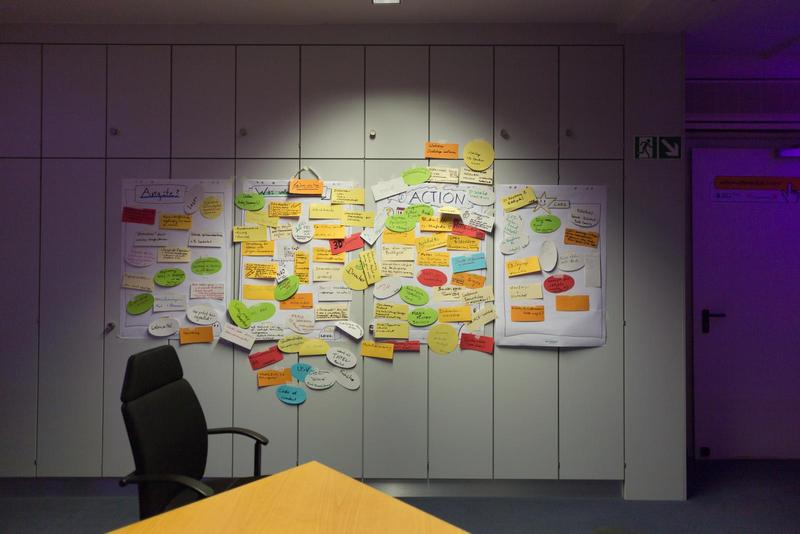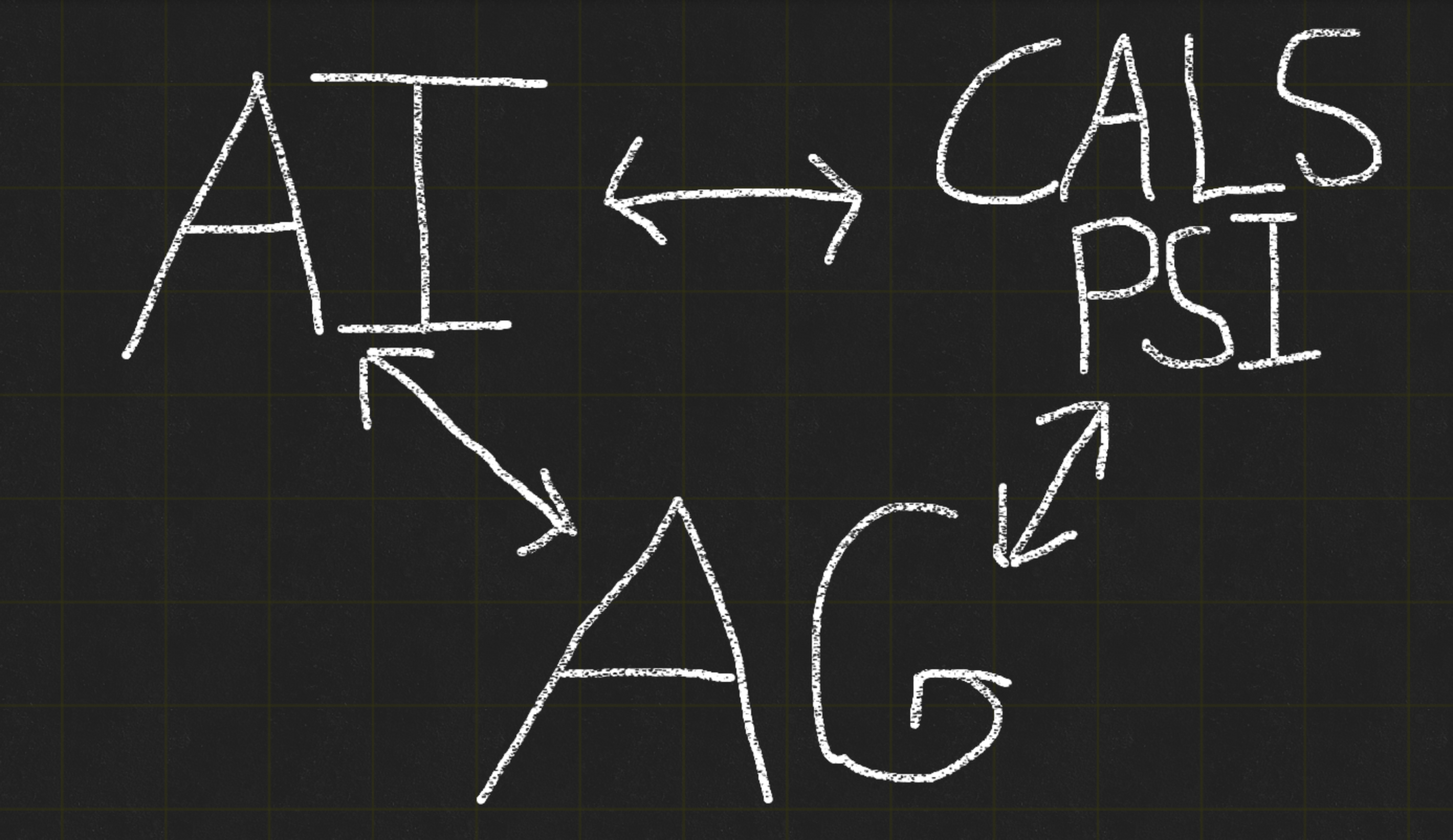
Artificial Intelligence holds tremendous potential for engendering step
changes in our ability to manage agricultural and natural systems.
Realizing this potential is challenging due to the interdisciplinary nature
of the core ingredients necessary to support production AI applications at scale.
Here, we will dive into applied AI in the context of data-driven science.
First we will discuss the key ingredients necessary to support production
AI while using case studies to highlight successful implementation of AI solutions
when these ingredients are present. Next, we will discuss what the future holds with a
focus on untapped potential for AI applications in agricultural and managed natural systems.
A key theme emphasized throughout the presentation will be the interdisciplinary nature of
systems science for sustainable agriculture.
Presentation Access
This Research Seminar is designed to be both accessible and reproducible.
You can preview the content and follow along during the presentation here.
In addition, all of the code used to generate the presentation and content is publicly available
on GitLab here.
This presentation was developed using RevealJS and Quarto

Artificial intelligence and data science are extremely powerful tools,
the full consequences of which are only beginning to be appreciated by both practitioners
and society at large. Here, we will take a case-study driven approach with real-world
examples to highlight ethical pitfalls of applying AI tools at scale. We will focus both
on broader impacts of personal decision making and the personal ramifications of such
decisions for data scientists. Using examples from Industry and Government, students
will step into the shoes of data scientists in ethically precarious situations then learn
about the actual decisions data-scientists made in those same situations. Following these
case studies, we will take a step back and discuss how these lessons learned map to work in
sustainable agricultural systems.
Background
This teaching seminar is an excerpt from the Earth Systems Data Science in the Cloud intensive
offered at the North Carolina Institute for Climate Studies. This activity is offered as the
introduction to Module 2: Data Product Development | Statistics/AI & ML
after students have gone through Exploratory Data
Analysis and Data Preprocessing. More information about the course can be found on the course
homepage.
Presentation Access
This Teaching Seminar is designed to be both accessible and reproducible.
You can preview the content and follow along during the presentation here.
In addition, all of the code used to generate the presentation and content is publicly available
on GitLab here.
This presentation was developed using RevealJS and Quarto
Chalk Talk

Principles, Practices, Proposals, Platforms and People: Building Sustainable Systems AI at NCSU
This Chalk Talk will focus on the key ingredients needed to support
interdisciplinary applied AI research in sustainable agricultural systems at
NC State University. A strong emphasis will be placed on the role of diversity,
equity, and inclusion in creating collaborative high-performing teams that build
community. We will also discuss strategies for building organizational capacity,
the fundamental interplay between research and teaching, how this work fits into
the broader NCSU ecosystem, and avenues for funding.
Denis S Willett

Dr. Willett joined NCICS in 2021 as a Research Scholar, Software Engineer contributing to the NOAA
Open Data Dissemination Program. His work focuses on leveraging cloud technologies for the
development of data processing and machine learning pipelines. Prior to NCICS, he developed analytics
and machine learning pipelines for agriculture as faculty at Cornell AgriTech and as a
data scientist across roles
in industry, academia, and the federal government. Denis did his PhD in Entomology and Nematology at
University of Florida and his undergraduate and masters work in Earth Systems at Stanford University.
Denis specializes in designing and deploying full-stack, cloud-native data science solutions to
intractable technical problems across domains. At NCICS, Denis works on petabyte scale multi-cloud
data transfer pipelines, creating pipelines to furnish analytics-ready environmental data, and building
production machine learning platforms applying MLOps principles to automate model development and
deployment. Previous work has involved building high-throughput metabolomics and volatilomics
phenotyping platforms, developing agricultural sensing and monitoring systems for pests and pathogens,
expanding the capabilities of scientific instrumentation using
machine learning and optimization, building prediction platforms that materials science engineers could
use to leverage machine learning for better product design, scaling IOT ingest and analytics pipelines,
implementing workforce development plans for data science teams, and strategic positioning planning for
bioinformatics companies.
A key component of this and previous work has been technical advocacy in organizations adopting machine
learning and cloud technologies. In working with and advising start-ups, Fortune 500 companies, Government
Agencies, and Universities, architecting change from the C-Suite to the technical teams has been a priority
with efforts focused on education, opportunity, and capacity building. A key part of this is building and
leading diverse teams to implement change at the strategic and technical level.
Elements
Text
This is bold and this is strong. This is italic and this is emphasized.
This is superscript text and this is subscript text.
This is underlined and this is code: for (;;) { ... }. Finally, this is a link.
Heading Level 2
Heading Level 3
Heading Level 4
Heading Level 5
Heading Level 6
Blockquote
Fringilla nisl. Donec accumsan interdum nisi, quis tincidunt felis sagittis eget tempus euismod. Vestibulum ante ipsum primis in faucibus vestibulum. Blandit adipiscing eu felis iaculis volutpat ac adipiscing accumsan faucibus. Vestibulum ante ipsum primis in faucibus lorem ipsum dolor sit amet nullam adipiscing eu felis.
Preformatted
i = 0;
while (!deck.isInOrder()) {
print 'Iteration ' + i;
deck.shuffle();
i++;
}
print 'It took ' + i + ' iterations to sort the deck.';
Lists
Unordered
- Dolor pulvinar etiam.
- Sagittis adipiscing.
- Felis enim feugiat.
Alternate
- Dolor pulvinar etiam.
- Sagittis adipiscing.
- Felis enim feugiat.
Ordered
- Dolor pulvinar etiam.
- Etiam vel felis viverra.
- Felis enim feugiat.
- Dolor pulvinar etiam.
- Etiam vel felis lorem.
- Felis enim et feugiat.
Icons
Actions
Table
Default
| Name |
Description |
Price |
| Item One |
Ante turpis integer aliquet porttitor. |
29.99 |
| Item Two |
Vis ac commodo adipiscing arcu aliquet. |
19.99 |
| Item Three |
Morbi faucibus arcu accumsan lorem. |
29.99 |
| Item Four |
Vitae integer tempus condimentum. |
19.99 |
| Item Five |
Ante turpis integer aliquet porttitor. |
29.99 |
|
100.00 |
Alternate
| Name |
Description |
Price |
| Item One |
Ante turpis integer aliquet porttitor. |
29.99 |
| Item Two |
Vis ac commodo adipiscing arcu aliquet. |
19.99 |
| Item Three |
Morbi faucibus arcu accumsan lorem. |
29.99 |
| Item Four |
Vitae integer tempus condimentum. |
19.99 |
| Item Five |
Ante turpis integer aliquet porttitor. |
29.99 |
|
100.00 |



